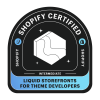What is a brand? #
A brand is a distinct icon, symbol, mark, logo design, logotype, name, word, sentence, or a mix that businesses use to differentiate services or product from others in the marketplace. E-commerce branding includes the brand’s logo, name, attractive tagline on your webshop, and overall e-commerce business personality.
What is digital branding? #
Branding links an item, experience, individual, or feeling to a brand name. Great branding can raise the value of the product and the organization itself. A business’s identity in the market can conveniently make or damage its earnings in its entirety. It is all about perception. When the business owner successfully creates and takes care of a desirable understanding of its brand, the brand name is more effective and important.
Coca-Cola, BMW, and also Apple are significant instances. Just mention the name, and virtually everybody will react with the same adjectives or feelings. Whether people “get” to any of these, their understanding of these brands will likely be comparable. This “consumer brand name expertise” identifies one item or company from another. This is vital to brand name awareness.
What is brand loyalty? #
Brand loyalty is the favorable association consumers connect to a specific item or brand. Customers who display brand loyalty are devoted to a service or product, shown by their repeat purchases, regardless of competitors’ initiatives to draw them away. Corporations spend significant cash on customer service and advertising to create and maintain brand name loyalty for a well-known entity. Coca-Cola is an example of a legendary brand name that has resulted in clients demonstrating brand commitment throughout the years despite Pepsi’s products advertising and marketing efforts.
A lot of significant brand names develop a brand story. In a nutshell, the brand name is “the hero,” which helps you eliminate particular hardships. But, most significantly, they fight for something that the target market cares about. Whether is be planting trees on a climate awareness day (like Earth Day) or focusing on internal values such as flexibility or self-affirmation. In this manner, an e-commerce business can connect with its target audience. The important messages that the brand story should reflect are the vision and mission of the brand, as those two are what your customers search for to make an emotional connection to the brand.
Naming as crucial part of e-commerce branding #
If you are new in the online market and need to start your e-commerce branding from scratch, your first step will be to make a name for your business. This is where you need to be careful, as there are already so many brands in the ocean, and you don’t want to go unnoticed because of them. Do detailed research before choosing a name, which is vital for e-commerce branding. Although it’s already hard to find a unique name, give it a try. If nothing, make sure to name your e-commerce brand with a word or a phrase that is not that frequent and look for it to be a one-of-a-kind in your niche.
Why is e-commerce branding so important? #
E-commerce is an incredibly congested room with over 7M retailers, and strong branding aids a business to survive and prosper regardless of a resemblance in items. For a company with traditional visibility first, relocating to e-commerce is more accessible due to already having a well-known name and in-person brand name experience. Most significant reasons why branding matters for e-commerce:
- Branding builds trust.
- Branding provides an experience.
- Branding shapes expectations.
If your business is new, among the first steps in e-commerce branding (besides choosing a name) is defining the target, also known as the buyer persona. You need to determine the kind of customer that will shop from your e-store and adapt the e-commerce branding based on them. Knowing your buyer persona will help you make better e-commerce branding of your webshop, eventually leading to a better conversion rate.
When you have a well-defined buyer persona, a proper brand name, and a brand story that includes the brand’s mission and vision, you are on an excellent path to becoming successful in e-commerce.
Do you want to learn more about e-commerce? Continue reading about → Omnichannel e-commerce.

